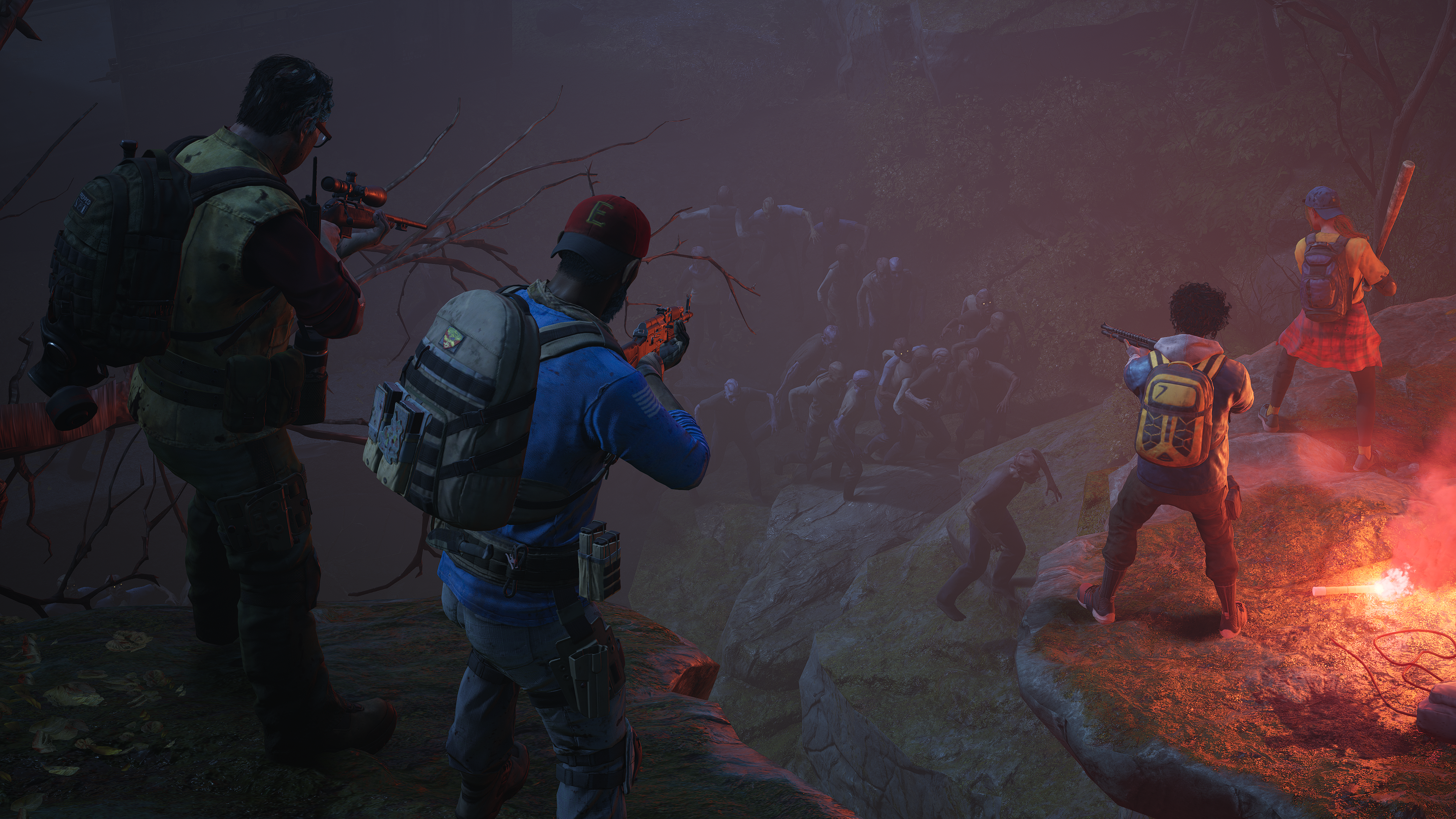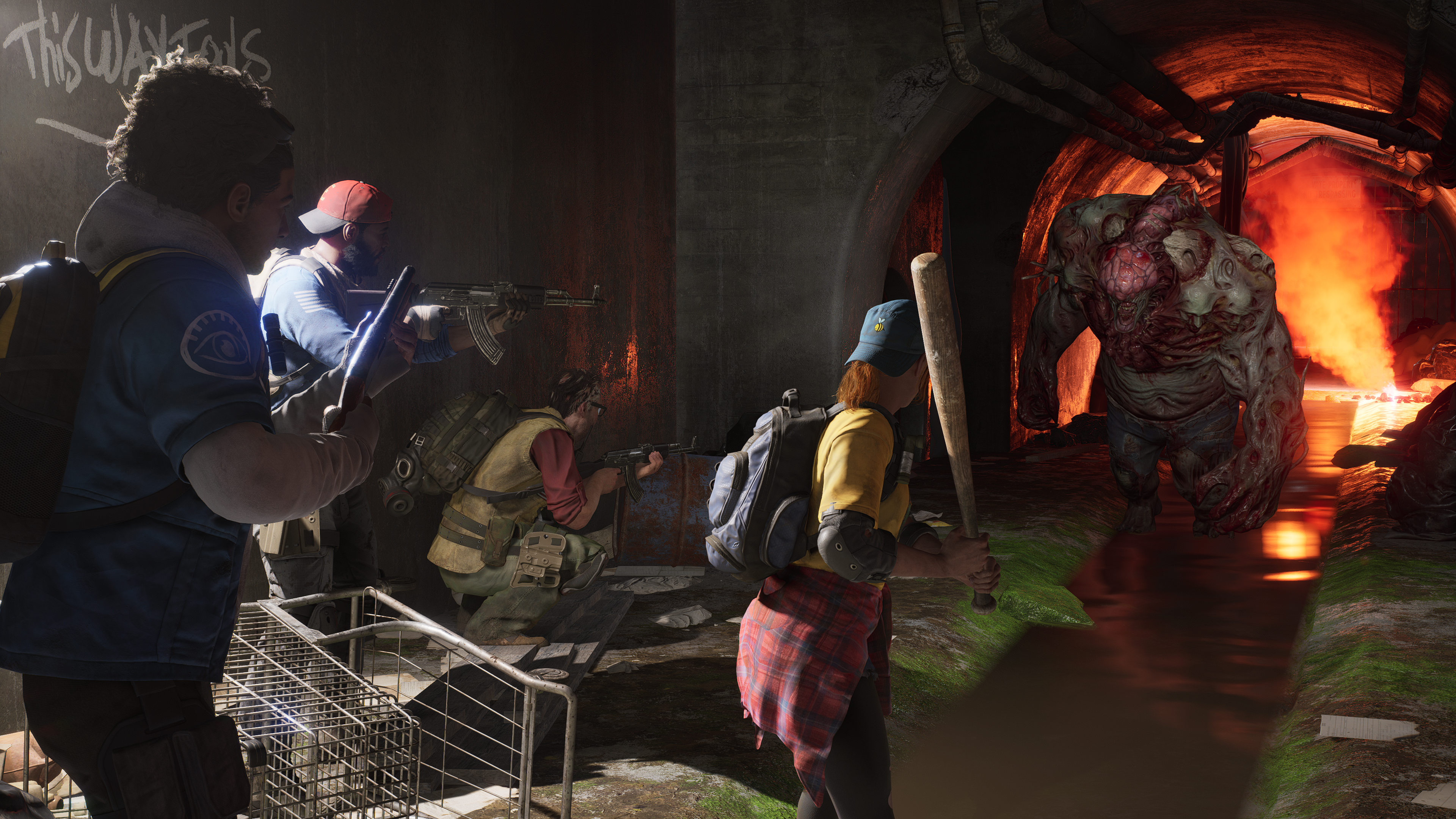“Yeah, well, I think it’s fair to say for sure,” says Back 4 Blood’s creative director and Turtle Rock co-founder Phil Robb. “I mean, anyone who is a fan of the Left 4 Dead series will feel comfortable playing this game - but we’ve got a lot more stuff we’ve packed into it as well. There are similarities, but it’s its own thing.” That’s the thing that’s most striking about Back 4 Blood - at first, at least, before you begin to grasp some of its own quirks and twists. There’s the familiarity of it all, the heft of its assault rifle in the hands as it chugs through swarms of undead as reassuring in its own way as putting on a pair of favourite slippers, but in Back 4 Blood everything’s been dialled up a notch or two. Those mobs are that little bit thicker, special enemies such as bruising tall boys and hissing snitches are much more frequent, and there’s even a 20-foot bastard of a beast in the shape of the Ogre that occasionally rips through the ground to join in with all the messy fun. And it really is messy - brilliantly, bloodily so. Within minutes the floor is thick with the fallen and their torn asunder limbs, while each and every character is covered head to toe in gore. It is gloriously excessive. “The studio’s got a lot more experience now as well,” says Turtle Rock co-founder and design director Chris Ashton. “So it’s new tech, new features - obviously we’re on next gen platforms and Unreal Engine 4. So the visuals of the game, the types of missions we can make and stuff like that - the upper limit is much higher nowadays.” The end result really does feel a lot like you might imagine a new Left 4 Dead might play should it come out today - as it has every right to, given Turtle Rock’s heritage - though there are a handful of twists that help give Back 4 Blood its own flavour. The characters on offer have more defined roles, with individual attributes giving more meaning to that initial choice: Walker, my personal pick for my own playthrough, seems tuned more towards a tank role with increased health as well as greater ammo capacity and improved accuracy with weapons. All of which also means he’s quite handy when blocking a doorway and wildly swinging a machete into the mob. The most impactful change, though, is the new roguelite element lent by the cards you play at the start of each round. The opposition deals a hand of Corruption cards, introducing new elements into your playthrough - a shroud of fog, say, or a particular strand of infected - which you can counter with your own hand, playing abilities such as improved fire resistance or greater accuracy when crouching from a deck you build throughout the game (and earnt in-game rather than via microtransactions, it’s worth noting). It’s a mechanic that’s hard to get a precise handle on after only a short amount of time with the game, but it does promise to add a new dynamic that’ll keep multiple playthroughs fresh. What I really love about the cards, though, is how they expose one of Left 4 Dead’s most valuable systems, and putting the game director in the hands of the player. “It’s a lot of stuff that traditionally in our past games we’ve played around with behind the curtain,” says Chris Ashton of the cards and what they bring. “It’s giving players control over things that we would have normally just have a system doing in the background.” Having all that to tinker with is enticing, but right now it’s just a pleasure to be reminded of the potency of the formula Turtle Rock introduced all those years back, and to see where it can be pushed with modern technologies and techniques. It’s a thrill to see a team back doing what they do best, and for what’s shaping up to be a bloody good time.

